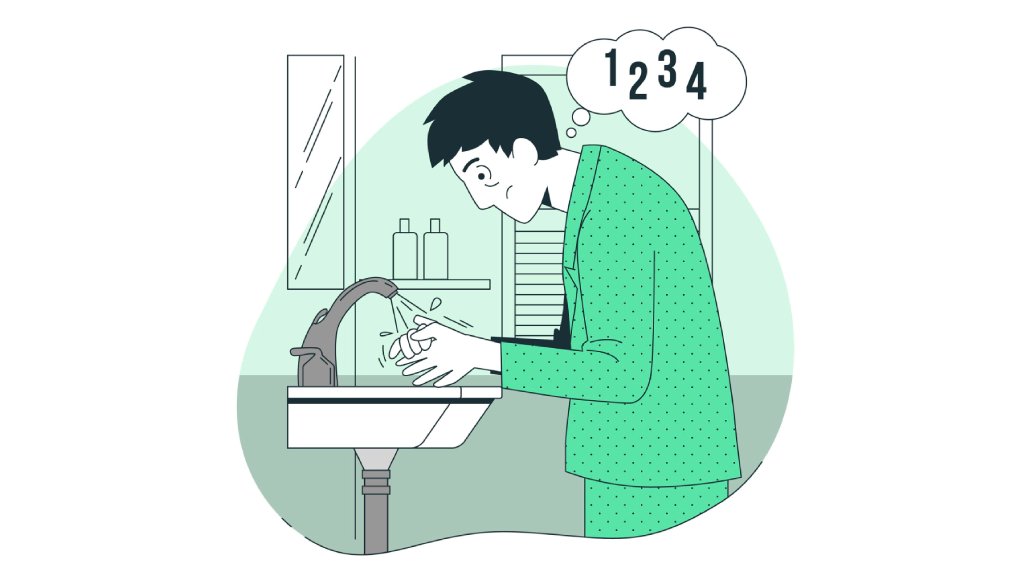The term OCD nowadays can be heard in general conversation used by normal people. Although normal people use it to describe rigid meticulous rituals that people take up and are often reluctant to let go of, in the clinical sense of psychology, OCD means something a bit different. Obsessive-compulsive disorder is known to affect about 2.3% of people at some point in their lives and around 50% of affected patients experience adverse effects to daily life before age 20.
What is OCD?
Obsessive-compulsive disorder (OCD) consists of two symptoms – obsession and compulsion. Obsession involves uncontrollable unwanted recurring thoughts and urges that trigger intensely distressing feelings. Usually, it is seen that people who have obsessions actively try to resist or suppress them, or at least overcome them with some other thought or action. The most common type of obsession is dirt or contamination. For example, people feel that their hands are dirty after touching a doorknob, or worry that they will contaminate others with their germs.
The second symptom is a compulsion. These are repetitive behaviours that a person with OCD feels the urge to do in order to make the obsession go away. A person with contamination obsession washes his/her hands frequently to reduce the distressing feeling which in turn reinforces the repetitive behaviour.
OCD or “Just a ritual”?
Not all repetitive behaviour or rituals are compulsions. A lot of people who do not have anxiety or OCD will have repetitive thoughts or engage in repetitive behaviours. For example, bedtime routines, religious practices, and learning a new skill, all involve some level of repeating an activity over and over again but are usually a positive and functional part of daily life. Arranging and ordering books for eight hours a day is not a compulsion if the person works in a library.
People without OCD engage in these repetitive rituals because it makes their life easier by giving things structure. A person may have a certain pattern of washing their hair and would not deviate from this pattern because it would make their task less efficient. Also, such rituals do not affect the person’s daily functioning. However, a person with OCD cannot help but perform the rituals related to the obsession because they experience a constant state of anxiety and a range of distressing thoughts and feelings in the absence of the behaviour.
Signs of OCD
OCD involves two main types of symptoms: obsessions and compulsions. Many people living with OCD experience both obsessions and compulsions, but some people only experience one or the other.
Types of obsessions
The content of obsessive thoughts can vary widely, but a few common themes include
Types of Compulsion
Common types of compulsive behaviour in people with OCD include
These are some forms of OCD that are usually seen in patients. The presence of one or more than one form of these OCDs in a person is a sign of obsessive-compulsive disorder. However, besides these symptoms, there are certain other criteria that are to be met for OCD.
These criteria are
Treatment
Taking the first step towards seeking help is recognizing that there is a problem and that this problem is making it hard for you to continue with your daily life. The next step is to go see a medical professional, where both the patient and the professional work towards mitigating the problem.
As with any illness, the treatment should be tailored to a specific individual. In addition to providing consultation services, the Center for Mental Health offers you a complete solution. You can visit our centre to get the best OCD treatment in Pune if you feel you suffer from this disorder.

